The Ottoman 'Wild West'
The Balkan Frontier in the Fifteenth and Sixteenth Centuries
- Author: Nikolay Antov, University of Arkansas
- Date Published: March 2020
- availability: Available
- format: Paperback
- isbn: 9781316633748
Paperback
Other available formats:
Hardback, eBook
Looking for an examination copy?
This title is not currently available for examination. However, if you are interested in the title for your course we can consider offering an examination copy. To register your interest please contact [email protected] providing details of the course you are teaching.
-
In the late fifteenth century, the north-eastern Balkans were under-populated and under-institutionalized. Yet, by the end of the following century, the regions of Deliorman and Gerlovo were home to one of the largest Muslim populations in southeast Europe. Nikolay Antov sheds fresh light on the mechanics of Islamization along the Ottoman frontier, and presents an instructive case study of the 'indigenization' of Islam – the process through which Islam, in its diverse doctrinal and socio-cultural manifestations, became part of a distinct regional landscape. Simultaneously, Antov uses a wide array of administrative, narrative-literary, and legal sources, exploring the perspectives of both the imperial center and regional actors in urban, rural, and nomadic settings, to trace the transformation of the Ottoman polity from a frontier principality into a centralized empire. Contributing to the further understanding of Balkan Islam, state formation and empire building, this unique text will appeal to those studying Ottoman, Balkan, and Islamic world history.
Read more- The first monograph-length study of the formation of one of the most significant Muslim communities in the Balkans, helping the reader develop their knowledge of the origins of Balkan Islam and Islamic 'indigenization'
- Explores the interplay of Islamization in a regional, frontier setting, and the impact of Ottoman state policies on these processes, contributing to the reader's understanding of Islamization and Islamic expansion
- Uses administrative, legal, and literary-ideational sources to provide a methodological model for the use of typologically diverse sources in early modern Ottoman and Islamic world historiography
Reviews & endorsements
'The Ottoman Wild West makes substantive contributions to the history of Muslim communities in the early modern northeastern Balkans and, simultaneously, to the history of the imperialization of the Ottoman Empire. Through meticulously documented and carefully reasoned analyses of social, economic and religious primary sources, Antov delineates the intertwined processes of Turcoman colonization and conversion to Islam while simultaneously demonstrating the impact of Ottoman state policies on these processes at both the central and regional levels. The result is an incredibly rich and robust story of 'Islamization' that is quite simply exemplary.' Ahmet T. Karamustafa, University of Maryland
See more reviews'Nikolay Antov's The Ottoman 'Wild West' presents one of the most nuanced and well-researched studies on the establishment of Ottoman rule in the Balkans. Its contributions to studies of empire building and Islamization will make echoes far beyond Ottoman historiography. Synthesizing the approaches of such great Ottoman historians as Ömer Lütfi Barkan and Ahmet Yaºar Ocak, Antov also offers a masterful historiographical lesson to all students of Ottoman history, senior and junior alike, on how to utilize archival sources in conversation with the narrative ones.' Baki Tezcan, University of California, Davis
'… the work provides a useful reference and source of information for scholars of the Ottoman Balkans’ religious and social history …' Ines Aščerić-Todd, TRT World Research Centre
Customer reviews
Not yet reviewed
Be the first to review
Review was not posted due to profanity
×Product details
- Date Published: March 2020
- format: Paperback
- isbn: 9781316633748
- length: 344 pages
- dimensions: 230 x 150 x 20 mm
- weight: 0.5kg
- availability: Available
Table of Contents
Introduction
1. The broad historical context – the rise of the Ottoman empire and the formation of Muslim communities in the Balkans as an integral part of the Ottomanization of the region
2. Colonization, settlement, and faith in the Balkans in the Early Ottoman period (ca. 1352 to early sixteenth century)
3. The northeastern Balkans from the late Medieval period to the late fifteenth century: pre-Ottoman Turcoman invasions and migrations, the Ottoman conquest, and the 'turbulent' fifteenth century. Deliorman and Gerlovo as a 'special case'
4. The repopulation of Deliorman and Gerlovo's countryside in the sixteenth century
5. The development of the urban network in sixteenth-century Deliorman. The emergence of Hezargrad and Eski Cuma, the transformation of Shumnu into an Islamic city, and the decline of Chernovi
6. Religion, culture, and authority: two case studies
7. Issues in religion, culture, and authority: conversion to Islam and confessionalization.
Sorry, this resource is locked
Please register or sign in to request access. If you are having problems accessing these resources please email [email protected]
Register Sign in» Proceed
You are now leaving the Cambridge University Press website. Your eBook purchase and download will be completed by our partner www.ebooks.com. Please see the permission section of the www.ebooks.com catalogue page for details of the print & copy limits on our eBooks.
Continue ×Are you sure you want to delete your account?
This cannot be undone.
Thank you for your feedback which will help us improve our service.
If you requested a response, we will make sure to get back to you shortly.
×
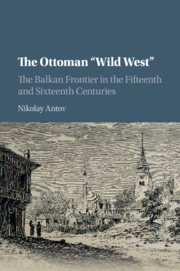
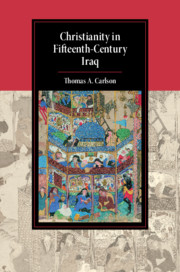
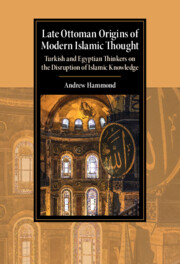
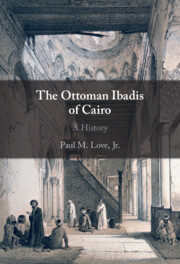
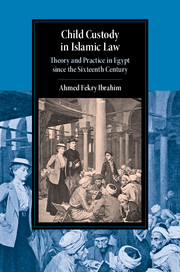
.jpg)
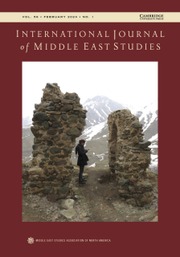
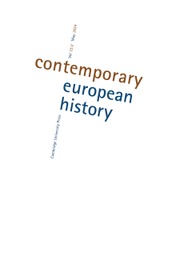

.jpg)